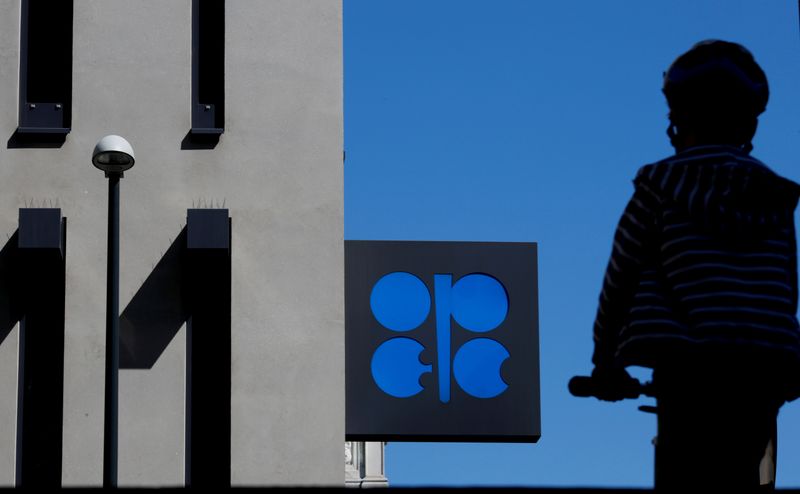By Alex Lawler
LONDON (Reuters) - World oil demand will fall more steeply in 2020 than previously forecast due to the coronavirus and recover more slowly than expected next year, OPEC said on Monday, potentially making it harder for the group and its allies to support the market.
World oil demand will tumble by 9.46 million barrels per day (bpd) this year, the Organization of the Petroleum Exporting Countries said in a monthly report, more than the 9.06 million bpd decline expected a month ago.
Oil prices have collapsed as the coronavirus crisis has curtailed travel and economic activity. While some countries have eased lockdowns, allowing demand to recover, a rising number of new cases and higher oil output have weighed on prices.
"Risks remain elevated and tilted to the downside, particularly related to the development of COVID-19 infection cases as well as possible cures," OPEC said of the 2021 outlook.
"Increased usage of teleworking and distance conferencing is estimated to limit transportation fuels from fully recovering to 2019 levels."
That means demand will rebound more slowly than expected next year. OPEC sees consumption rising in 2021 by 6.62 million bpd, 370,00 bpd less than expected last month.
Oil stocks have built up due to the demand collapse. OPEC said inventories in developed nations fell by 4.5 million barrels in July but stood 260.6 million barrels above the five-year average, a yardstick that OPEC before the pandemic saw as a desirable level.
Crude (LCOc1) was trading below $40 a barrel on Monday after the report was released, below levels that many OPEC members need to balance their budgets. Prices have fallen by almost 15% so far this month.
HIGHER SUPPLY
To tackle the drop in demand, OPEC and its allies, known as OPEC+, agreed to a record supply cut of 9.7 million bpd that started on May 1, while the United States and other nations said they would pump less.
In the report, OPEC said its output rose by 760,000 bpd to 24.05 million bpd in August, as the 9.7 million bpd cut tapered to a reduction of 7.7 million bpd from Aug. 1.
That amounted to 103% compliance with the pledges, according to a Reuters calculation - up from July's figure of 97%.
A monitoring panel of OPEC+ ministers meets on Thursday to discuss the market. Some delegates have voiced concern about the drop in prices this month although there are, as yet, no signs that the group is planning to tweak the supply pact.
The report also forecast demand for OPEC crude will be lower than expected this year and next, as supply increases outside the group and because of the reduced global demand outlook.

OPEC said demand for its crude this year will average 22.6 million bpd, down 700,000 bpd from the previous forecast. That suggests the market will be in surplus should OPEC keep pumping at August's rate. Next year's forecast was cut by 1.1 million bpd.